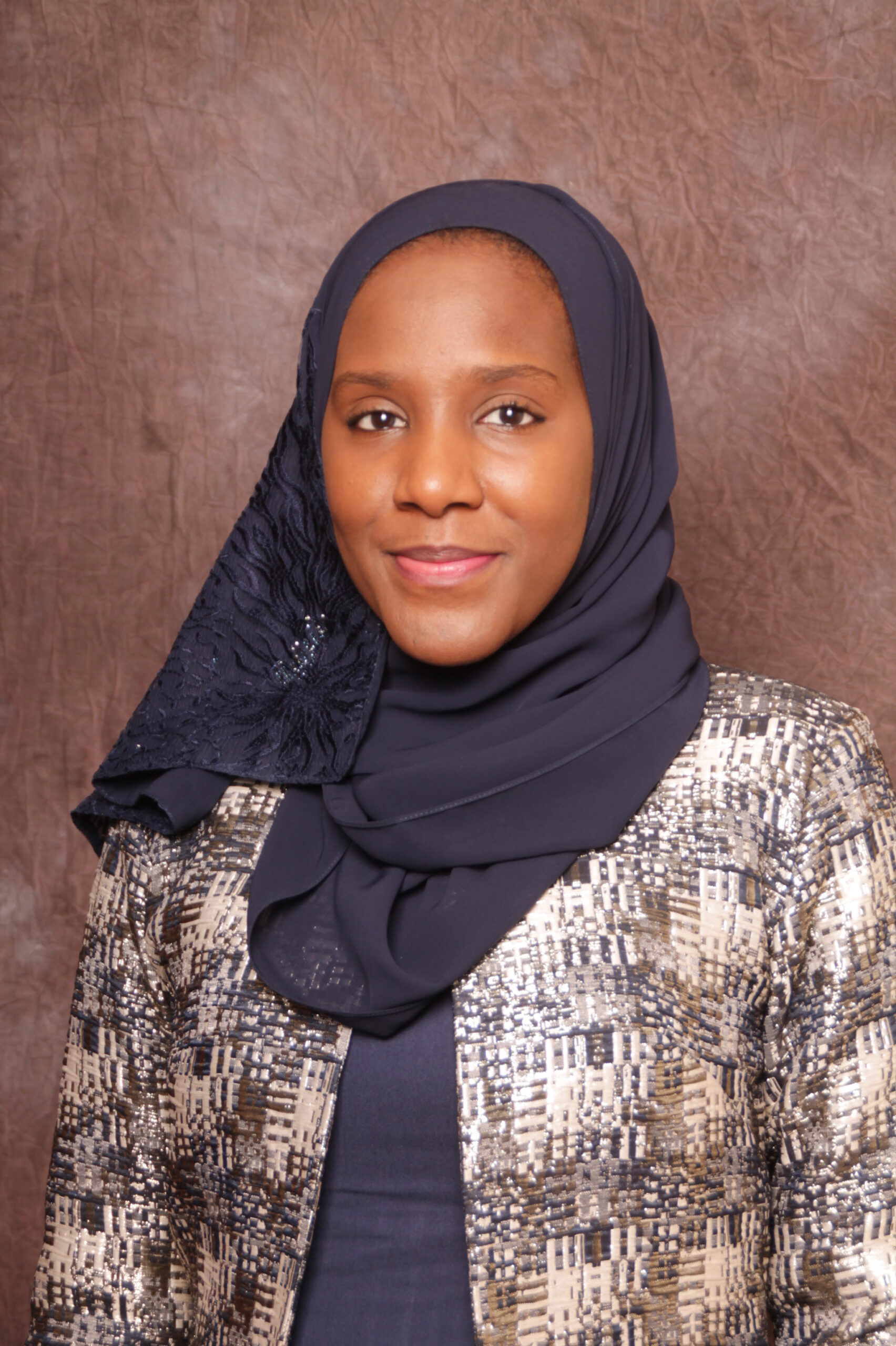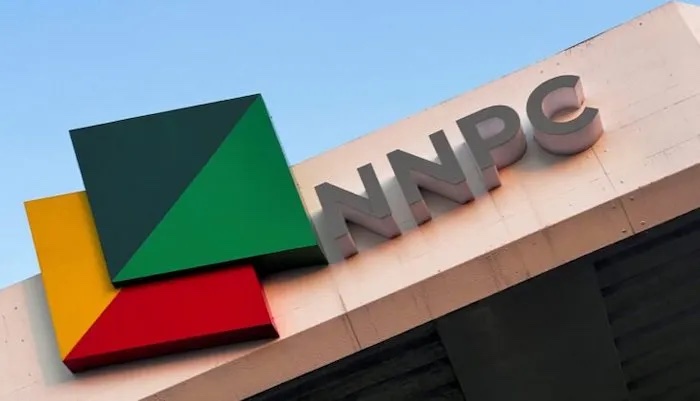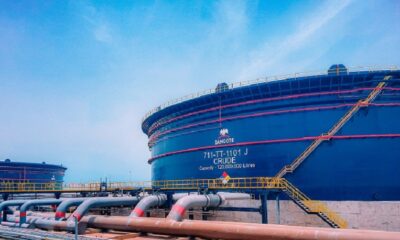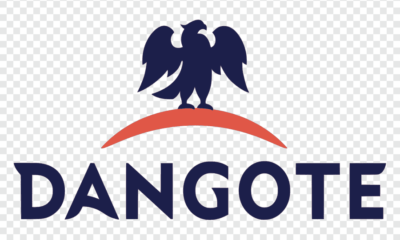Business
How Family-Owned Businesses Drive Global Economic Success – Halima Dangote

Family-owned businesses (FOBs) can continue to drive economic success, create value for shareholders, and positively impact their communities worldwide by staying true to their core values and adopting strategic practices that prioritise long-term growth, efficiency, and resilience.
This was part of the submission made by the Group Executive Director of Dangote Industries Limited, Halima Aliko-Dangote, during the Forbes Global CEO Conference in Bangkok, Thailand.
Halima, who is also the Executive Director, Family Office, spoke at the panel session on Family Business: Looking at the Next Frontier, opined that family-owned businesses have demonstrated exceptional resilience, navigating challenges and thriving over multiple decades.
Other speakers include the Managing Director and CEO of Worldwide Hotels, Carolyn Choo; the Managing Director of Damen Yachting, Rose Damen, a third-generation family shareholder of Damen Shipyards Group; and Co-Chairman of B.GRIMM Pharma, President of B. Grimm Joint Venture, and Board Member of B. Grimm Power, Caroline Link.
ALSO READ: CSR: Dangote Cement Fuels Education With Support Projects At Lagos Schools
According to her, success in family-owned businesses starts with shared values, goals, governance policies and alignment adding that reputation is part of ‘family capital’.
She maintained that governance structure, adherence to core values, customer satisfaction, optimization of shareholder value, meritocracy, integrity, leadership, brand equity, diversification/growth, philanthropy and preserving generational wealth play key roles to the success of our businesses.
Halima revealed that Dangote Group’s governance policies do not allow board and management to operate in silos as each business unit has at least three independent directors who offer a holistic view.
On other factors of success for Dangote Group, Halima emphasized, “We family-owned businesses have to stick to our tradition of asset rich-cash moderate or as my father will correct me, asset rich-cash poor. We as Dangote perpetuate a profitable business with strong values and strong governance structure. We make money while building our nation by contributing heavily to the global economy, creating massive jobs, thinking of our great grand kids and contributing excessively to humanity.”
Highlighting the significant contribution of FOBs to the global economy, Halima noted that studies by Mckinsey showed that they account for more than 70% of global GDP, generate annual turnovers of between $60 trillion and $70 trillion, and provide around 60% of global employment.
She stressed the crucial role these businesses play in creating jobs, sustaining communities, and driving development in sectors such as manufacturing, education, healthcare, and infrastructure across the world.
“Family-owned businesses (FOBs) have proven to be resilient, weathering challenges and thriving across multiple decades. Despite facing external pressures, many FOBs not only survive but also grow, contributing significantly to the global economy in ways that are often underestimated or overlooked,” she said.
She also pointed out that family-owned businesses often employ two key approaches in preparing the next generation for leadership roles: internal and external capacity building. Regarding internal capacity building, Halima explained that many families create internship programmes for young family members interested in taking over the business or assuming leadership positions.
“In Nigeria, we train the next generation so they can grow organically to leadership roles in family businesses. My dad’s approach is for you to start from ground up knowing you will get to leadership role if you work hard and do your job right. These experiences make it easier for you to learn the ropes and be prepared for leadership role in the future,” she pointed out.
On external capacity building, Halima discussed the practice of sending younger generations to work in non-family businesses. This approach enables them to acquire new skills, learn better processes, and gain diverse perspectives that can benefit the family business in the long run.
Halima revealed that she started her career as an Analyst at KPMG before joining Dangote Industries Limited.
The approach, she explained “removes the familiarity tag as the young generation got employed as other people and supervised to monitor their performance. This has been a common avenue business families have chosen to pursue for many years, having their next generation spend three to five years working outside the family business before eventually joining with a new set of skills and business knowledge.”
Addressing the challenges of succession planning, Halima emphasised the importance of involving the younger generation in the business early on.
She suggested that this creates a space for open communication, where the next generation can share their thoughts, ideas, and aspirations, while the senior generation provides critical information to help the next leaders make informed decisions.
She stressed the need for a balance between tradition and innovation in family-owned businesses. While tradition provides continuity and stability, she noted that innovation is vital to staying relevant and competitive in the modern marketplace.
“Successful family businesses recognise the need to adapt to changing consumer preferences, technological advancements, and market trends. Family businesses often have a wealth of experience and deep-rooted traditions. They can also benefit from external expertise and fresh perspectives,” she concluded.
Business
World Bank Appoints Aliko Dangote To Elite Group

The President and Chief Executive of the Dangote Group, Alh Aliko Dangote, has been appointed to the World Bank’s Private Sector Investment Lab.
Biztellers reports that his see the business mogul joining a select group of global business leaders tasked with driving investment and job creation in emerging economies.
The development was revealed in a statement in which he confirmed his acceptance, where the African industrialist reaffirmed his commitment to fostering sustainable economic growth through private sector-led investment, noting the transformative potential of such initiatives in developing markets.
“I am both honoured and excited to accept my appointment to the World Bank’s Private Sector Investment Lab, dedicated to advancing investment and employment in emerging economies,” Dangote said.
ALSO READ: Ministry Appoints New Director For DUFUTH, Uburu
“This opportunity aligns with my long-standing commitment to sustainable development and unlocking the potential of developing economies. Drawing inspiration from the remarkable successes of the Asian Tigers, which have demonstrated the power of strategic investment and focused economic policy, I am eager to collaborate with fellow leaders to replicate such outcomes across other regions.”
The Dangote Group, founded by Aliko Dangote, is the largest conglomerate in West Africa and one of the largest on the African continent. With interests spanning cement, fertiliser, salt, sugar, and oil, the Group employs over 30,000 people and is the largest taxpayer in Nigeria—contributing more in taxes than all of Nigeria’s banks combined. It is also the country’s largest employer after the government.
The $20 billion Dangote Petroleum Refinery & Petrochemicals, the Group’s flagship project, stands as the largest single private investment in Africa.
In addition to his business interests, Dangote leads the Aliko Dangote Foundation (ADF), the largest private foundation in sub-Saharan Africa, with the largest endowment by a single African donor. The Foundation primarily focuses on child nutrition, while also supporting interventions in health, education, empowerment, and disaster relief.
The World Bank announced Dangote’s appointment on Wednesday as part of a broader expansion of its Private Sector Investment Lab, which now enters a new phase aimed at scaling up solutions to attract private capital and create jobs in the developing world.
Joining Dangote in the elite group are Bill Anderson, CEO of Bayer AG; Sunil Bharti Mittal, Chair of Bharti Enterprises; and Mark Hoplamazian, President and CEO of Hyatt Hotels Corporation.
The World Bank said the expanded membership brings together business leaders with proven track records in generating employment in developing economies—supporting the Bank’s sharpened focus on job creation as a central pillar of global development.
“With the expanded membership, we are mainstreaming this work across our operations and tying it directly to the jobs agenda that is driving our strategy,” said World Bank Group President Ajay Banga. “This isn’t about altruism—it’s about helping the private sector see a path to investments that will deliver returns, and lift people and economies alike. It’s central to our mandate.”
The global bank said that over the last 18 months, the Lab brought together leaders from global financial institutions to identify the most pressing barriers to private sector investment in developing countries and to test actionable solutions.
The statement said that the work had now been consolidated into five priority focus areas that were being integrated across the bank operations, including regulatory and policy certainty.
The Lab’s founding members included senior executives from AXA, BlackRock, HSBC, Macquarie, Mitsubishi UFJ Financial Group, Ninety-One, Ping An Group, Royal Philips, Standard Bank, Standard Chartered, Sustainable Energy for All, Tata Sons, Temasek, and Three Cairns Group. The Lab is chaired by Shriti Vadera, Chair of Prudential plc.
Business
Trade Tensions Hit Nokia As Q1 Ends In €68M Loss
Nokia has reported a net loss of €68 million for the first quarter of 2025, a sharp decline from the €438 million profit recorded during the same period last year.
The Finnish telecoms equipment maker attributed the downturn to global trade disruptions and recently imposed tariffs by the United States.
The company’s net sales dropped slightly to €4.4 billion, down by one percent year-on-year.
READ ALSO: Trade War: China Strikes Back Wth 125% Tariffs On U.S. Goods
Tariff-related challenges were highlighted by Nokia’s President and CEO, Justin Hotard, who acknowledged the broader economic pressures affecting the industry.
“We are not immune to the rapidly evolving global trade landscape,” Hotard stated. “However, based on early customer feedback, I believe our markets should prove to be relatively resilient.”
He also noted the potential short-term financial impact, saying, “Based on what we see today, we currently expect a EUR 20 to 30 million impact on our comparable operating profit in the second quarter from the current tariffs.”
Earlier this month, U.S. President Donald Trump introduced a 10 percent tariff on global imports, while pausing plans for steeper duties, including a proposed 20 percent levy on products from the European Union.
Despite the quarterly setback, Nokia expressed confidence in its growth prospects.
The company is looking to its Network Infrastructure, Cloud and Network Services, and Mobile Networks divisions to drive sales in the year ahead.
In a sign of continued momentum in the mobile segment, Nokia also announced on Thursday that it had extended its contract with T-Mobile US.
The company said it is continuing “to see positive signs of stabilization” in Mobile Networks.
Business
Marketers In Anguish, As Dangote, NNPC Ltd War Drag Price To N880/litre

The pull of market forces which moved the hands of the Nigerian National Petroleum Company Limited (NNPC Ltd) to reduce the price of Premium Motor Spirit (petrol) to N880 per litre in Lagos and N935 in Abuja appears to be a source of torture to independent markets.
Biztellers reports that the latest price review on Easter Monday saw NNPC retail outlets in Lagos drop from N925 to N880, while those in Abuja adjusted from N950 to N935.
The NNPC Ltd’s price reduction came barely a week after the Dangote Refinery lowered its ex-depot price from N865 to N835 per litre.
ALSO READ: BREAKING: Again, Dangote Cuts Petrol Price To N835 per Litre
In addition, the $20bn refinery also directed its partners like MRS, Heyden, and Ardova to sell a litre of petrol at the rate of N890 instead of N920 in Lagos, N900 in the South West, N910 in the South-South, and N920 in the North East.
Consumers can smile because with the reaction, the NNPC Ltd’s new price in Lagos is N10 lower than what the Dangote Refinery is selling at, which might lead to another reaction, as the price war between the two companies.
Though some NNPC Ltd’s retail outlets were observed selling at the old rate in Lagos, it was gathered that they were given the liberty to exhaust old stock before adjusting to the new prices.
Market sources are of the view that the current price war was ignited by the Federal Government’s implementation of the Naira-for-crude policy.




















